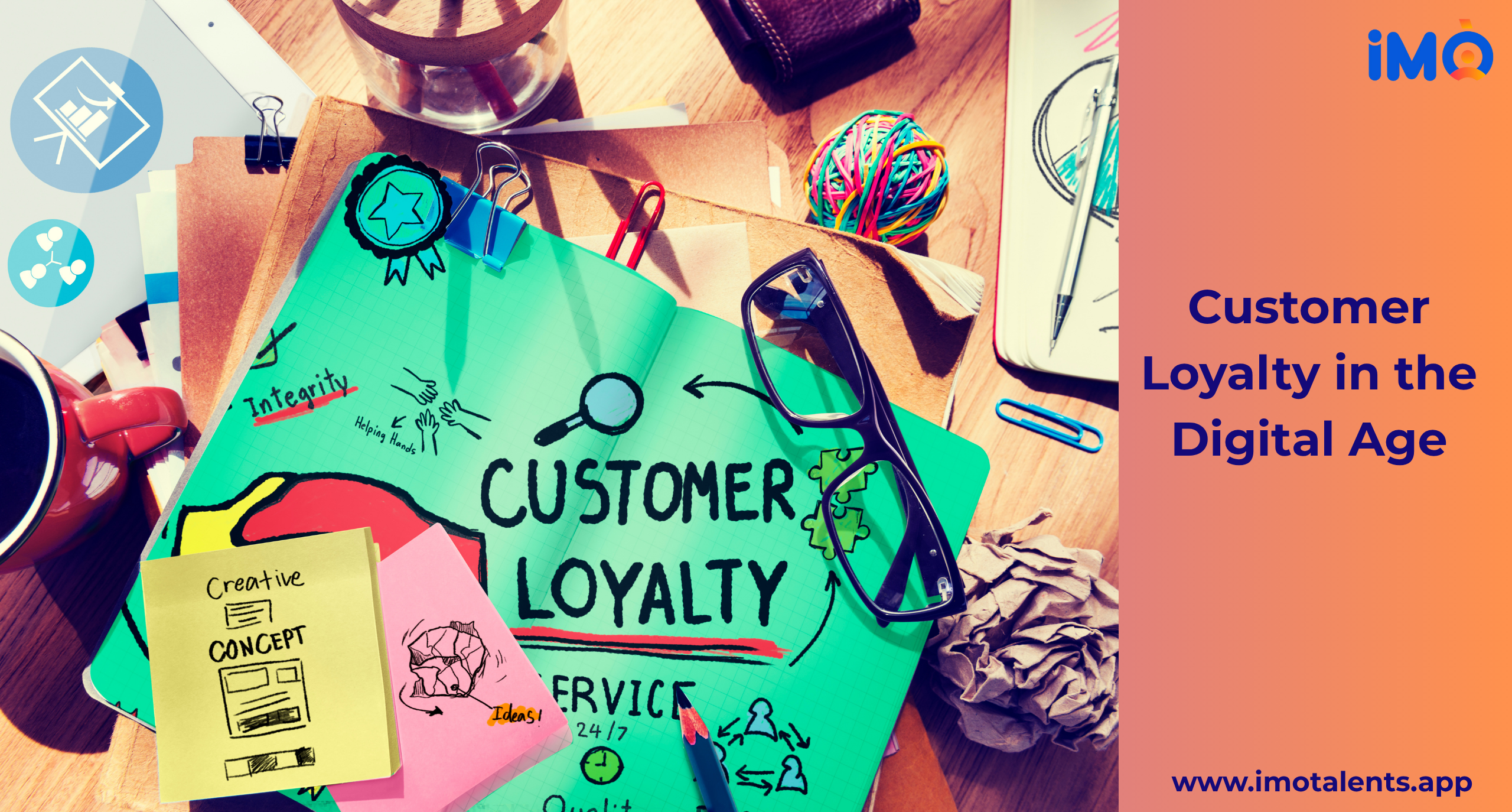Customer loyalty is more than just repeat purchases. As consumers have access to an abundance of choices at their fingertips, retaining customers has become more complex than ever. In recent times, traditional loyalty programmes alone are no longer sufficient; businesses must leverage technology, data analytics, and personalised experiences to cultivate meaningful relationships with their customers.
Customer loyalty represents an emotional connection between a brand and its customers. A loyal customer not only continues to choose a brand over competitors but also acts as a brand ambassador, promoting it through word-of-mouth and online reviews.
Traditionally, customer loyalty was built through personal relationships, consistent product quality, and customer service excellence. However, the digital age has transformed the way brands engage with consumers.
Today, customer loyalty is influenced by factors such as seamless digital experiences, personalised interactions, and instant gratification. Businesses must adapt to these new expectations and leverage digital tools to nurture long-term loyalty.
The Shift from Transactional to Relationship-Based Loyalty
Historically, customer loyalty was primarily transactional, driven by repeat purchases, discounts, and rewards programmes. Customers would return to a brand simply because they were incentivised through financial benefits.
While these tactics remain relevant, the digital age has prompted a shift towards relationship-based customer loyalty, where emotional connections, trust, and personalised engagement play a more significant role.
Transactional loyalty is easy to replicate. Competing brands can offer similar discounts, cashback, or loyalty points, making it difficult to differentiate based on rewards alone. However, relationship-based customer loyalty is built on meaningful interactions, customer experience, and brand values, making it harder for competitors to disrupt.
Emotional connection is a key driver of relationship-based customer loyalty. Customers are more likely to stay loyal to brands that align with their personal values and offer a sense of belonging.
Companies that engage in ethical business practices, sustainability initiatives, and corporate social responsibility (CSR) efforts often see increased customer loyalty. Consumers today want to support brands that make a positive impact on society.
Personalisation also plays a crucial role in fostering relationship-based customer loyalty. Customers appreciate brands that understand their preferences and cater to their individual needs. Businesses that invest in AI-driven recommendations, customised offers, and tailored experiences create a sense of exclusivity and belonging, leading to stronger customer loyalty.
Another aspect of relationship-based customer loyalty is engagement beyond the point of sale. Businesses that maintain ongoing communication with customers through personalised emails, social media interactions, and exclusive content create a lasting impression.
Community-building efforts, such as brand forums, VIP memberships, and customer advocacy programmes, further reinforce loyalty by making customers feel like valued members of a brand ecosystem.
Exceptional customer service also plays a vital role in shifting from transactional to relationship-based customer loyalty. Customers remember how they were treated more than the price they paid. Providing seamless support, addressing concerns proactively, and making customers feel heard strengthens the relationship between a brand and its customers.
As competition in the digital marketplace intensifies, brands that focus solely on transactional loyalty may struggle to retain customers in the long term. Businesses can create lasting emotional bonds, differentiate themselves from competitors, and cultivate a loyal customer base that extends beyond price incentives by prioritising relationship-based customer loyalty.
Factors Influencing Customer Loyalty in the Digital Age
Personalisation and customer engagement play a crucial role in modern customer loyalty. Customers expect brands to understand their preferences and tailor experiences accordingly. Personalised emails, AI-driven recommendations, and customised promotions enhance customer loyalty by making consumers feel valued. Businesses that invest in data-driven personalisation gain a competitive edge in fostering deeper connections with their customers.
An omnichannel experience is essential in the digital age. A seamless experience across multiple channels, including mobile apps, social media, and websites, ensures that customers remain engaged.
Customers interact with brands on various platforms, and a disjointed experience can lead to frustration and decreased customer loyalty. Ensuring consistency across all touchpoints builds trust and strengthens brand affinity.
Social proof and online reputation significantly impact customer loyalty. In the digital landscape, customer reviews, testimonials, and social media influence purchasing decisions. Businesses that encourage user-generated content and maintain a positive online presence benefit from increased customer loyalty.
Consumers are more likely to trust peer recommendations over traditional advertisements. Instant customer support and communication contribute to higher customer loyalty. Customers expect immediate responses to their queries.
Chatbots, AI-driven support systems, and 24/7 customer service improve engagement and satisfaction. A responsive and helpful brand fosters trust and reliability, encouraging customers to remain loyal.
Emotional connection and brand values are also fundamental to long-term customer loyalty. Beyond discounts and promotions, customers remain loyal to brands that align with their values.
Ethical business practices, corporate social responsibility, and brand authenticity play a significant role in maintaining customer loyalty in the digital age. Consumers want to support brands that share their beliefs and make a positive impact.
Strategies to Build and Maintain Customer Loyalty in the Digital Age
Implementing digital loyalty programmes enhances customer loyalty by offering meaningful incentives. Modern loyalty programmes go beyond point-based rewards. Businesses now use AI and blockchain to create personalised loyalty experiences.
Digital wallets, exclusive member benefits, and experiential rewards further strengthen customer relationships. Leveraging artificial intelligence and data analytics allows businesses to predict customer behaviour, segment audiences, and deliver targeted marketing campaigns.
Brands can anticipate needs, personalise interactions, and foster stronger customer loyalty by analysing customer data.
Enhancing user experience (UX) and website optimisation improves customer loyalty by ensuring ease of access and navigation. Slow-loading pages, complicated checkouts, and poor design can drive customers away, while an optimised digital experience encourages repeat visits.
Creating engaging content and community building also play a crucial role in nurturing customer loyalty. Brands that provide valuable content through blogs, videos, and interactive platforms establish themselves as industry leaders. Community-building initiatives, such as forums and exclusive events, further strengthen customer relationships.
Providing an exceptional post-purchase experience ensures that customers continue to feel valued. The relationship between a business and a customer does not end at the point of sale.
Post-purchase engagement through follow-up emails, satisfaction surveys, and after-sales support enhances customer loyalty. Ensuring customers feel valued after their purchase encourages them to return.
The Future of Customer Loyalty in the Digital Age
As technology continues to advance, the future of customer loyalty will be shaped by innovations such as blockchain-based loyalty programmes, AI-powered predictive analytics, and immersive experiences through augmented reality (AR) and virtual reality (VR). Businesses must stay ahead of trends and continuously adapt their strategies to maintain customer loyalty in an ever-evolving digital world.
Conclusion
Loyalty in the digital age is a dynamic and multifaceted challenge that requires businesses to embrace technology, personalisation, and customer-centric strategies. The traditional methods of retaining customers have evolved, and companies must innovate to keep up with changing consumer expectations. Businesses can build long-term relationships with their customers by leveraging data-driven insights, providing seamless digital experiences, and fostering emotional connections.
As competition intensifies in the digital marketplace, prioritising customer loyalty is essential for sustained growth and success. Businesses that invest in loyalty-building initiatives will not only retain existing customers but also create brand advocates who drive organic growth.
Ultimately, the key to thriving in the digital age lies in understanding, engaging, and valuing customers to ensure their continued loyalty.
Your customers are your biggest asset; nurture them, engage them, and watch your brand thrive. Ready to turn fleeting transactions into lifelong relationships?
Start transforming your strategy today because in the digital age, loyalty isn’t given, it’s earned. Visit us at IMO to learn more

